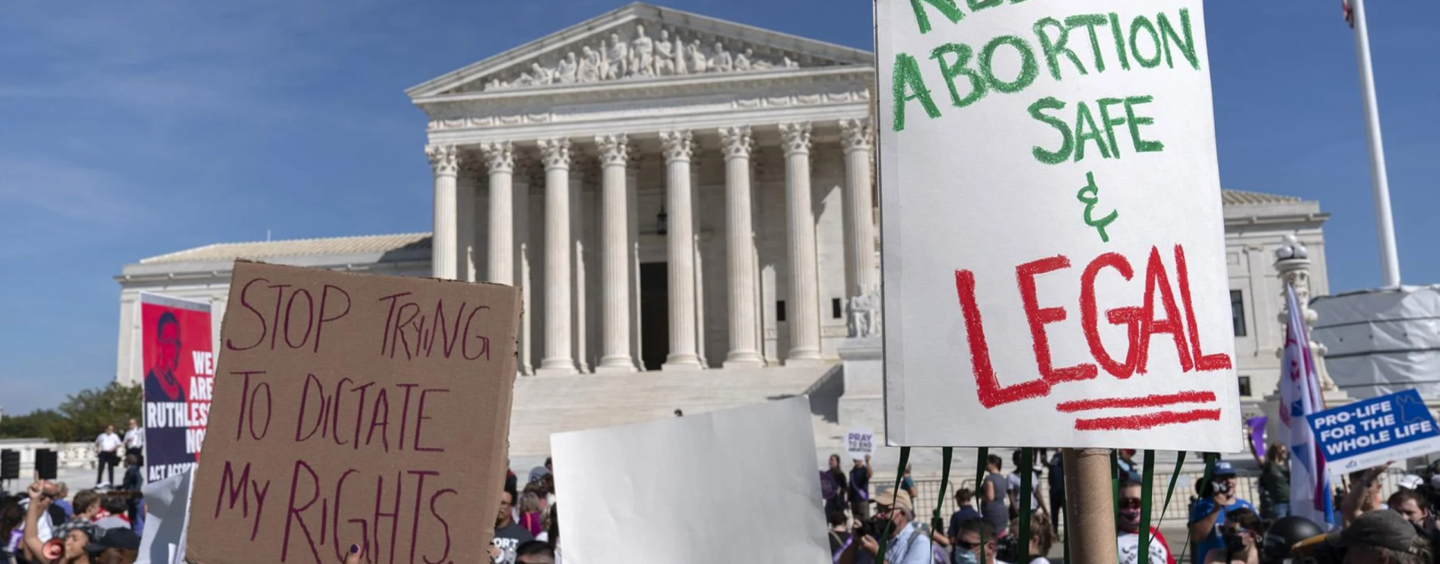
Today the U.S. Supreme Court took a devastating step to overturn Roe v. Wade and Planned Parenthood v. Casey, stripping millions of women, trans and nonbinary people across the country of reproductive rights, bodily autonomy, and access to safe and comprehensive health care.
While this ruling stands to impact us all, it will disproportionately harm working-class women and gender-expansive people in BIPOC communities. The ability to access an abortion has long been determined by wealth and income, and this ruling will only sharpen the class and race divides in abortion access. Even before Roe v. Wade, abortions were relatively accessible for wealthy, mostly white women, and they will remain so for those with the means to travel out of state for care. Low-income, disproportionately Black, Indigenous, and People of Color (BIPOC), on the other hand, will not have the same luxury to take time from work, travel the long distances required to reach a state that will provide them an abortion, and then endure mandatory waiting periods and other paternalistic barriers.
Reproductive rights are an economic justice issue. Restricting access to life-saving abortion care will have devastating effects on birthing people in our country, particularly BIPOC, further depleting limited economic resources in marginalized communities. Access to reproductive health care has a clear and positive impact on women’s economic wellbeing, while an unwanted pregnancy can present a great financial burden for low-income families. Those forced to carry to term will suddenly have an enormous additional strain on their future potential earnings, and without sufficient public supports for parents, like affordable child care, universal health care, and paid leave, these low-income parents and their children are likely to remain low-income experience adverse impacts on their health and wellbeing.
Each of us, no matter our gender, color, or income, will fight to keep ourselves and our families healthy but without universal accessible health care – including reproductive and abortion care – we cannot ensure safety and wellbeing for ourselves or our loved ones. EOI will continue to advocate alongside allied organizations until we win accessible health care, abortion care, child care, educational opportunity, and safe and healthy workplaces.
Find a list of reproductive health organizations to support and resources to share below.
Actions you can take today
Donate to groups helping connect people with out-of-state abortion:
- Give to local abortion funds in your state who help abortion seekers pay for procedures.
- Give to practical support organizations that help abortion seekers with travel, childcare, and other logistical needs.
- Give to independent clinics not affiliated with Planned Parenthood, but provide 6 in 10 abortions in the U.S., including all abortion care later in pregnancy. Many clinics are struggling to stay open, relocate or support their staff and their patients. In states where abortion has been immediately banned, many are working to help scheduled patients travel, here’s one in Alabama.
Share good, accurate information so abortion seekers can obtain care:
- Ineedana.com helps abortion seekers find a verified abortion provider and resources
- Abortionfinder.org helps abortion seekers find a verified abortion provider and resources
- Reprolegaldefensefund.org covers bail and funds strong defenses for people who are unjustly targeted by police or prosecutors for self-managing their abortion outside of a clinical setting
- Onlineabortionresources.org compiles accurate information to help people access an abortion
- Plancpills.org has information for accessing and using abortion pills
- all-options.org provides unbiased, judgment-free options counseling
- Linktr.ee/a.bortion linktree with great resources for every community
More To Read
May 19, 2025
A year of reflections, a path forward
Read EOI Executive Director's 2025 Changemaker Dinner speech
March 24, 2025
Remembering former Washington State House Speaker Frank Chopp
Rep. Chopp was Washington state’s longest-serving Speaker of the House
February 11, 2025
The rising cost of health care is unsustainable and out of control
We have solutions that put people over profits
